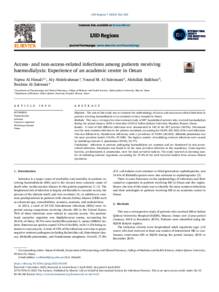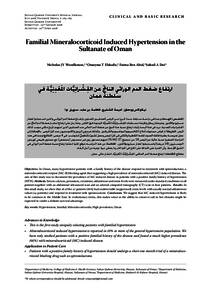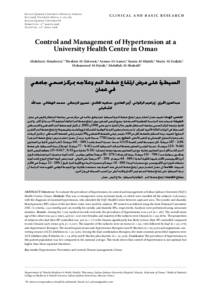Document
Access- and non-access-related infections among patients receiving haemodialysis : experience of an academic centre in Oman.
Contributors
Abdelrahman, Aly., Author
Al-Suleimani, Yousuf M., Author
Balkhair, Abdullah., Author
Al-Zakwani, Ibrahim., Author
Publisher
ScienceDirect.
Gregorian
2023
Language
English
English abstract
Objective
The aim of this study was to examine the epidemiology of access and non-access-related infections in patients receiving haemodialysis at an academic tertiary hospital in Oman.
Methods
This was a retrospective observational study of 287 hospitalized patients who received haemodialysis during the period January 2018 to December 2019 at Sultan Qaboos University Hospital, Muscat, Oman.
Results
A total of 202 different infections were documented in 142 of the 287 patients (49.5%). Pneumonia was the most common infection in the patients examined, accounting for 24.8% (50/202) of the total infections. This was followed by bloodstream infections, with a prevalence of 19.8% (40/202). Klebsiella pneumoniae was the most prevalent isolate (19.0%; 47/248). The highest number of multidrug-resistant infections were caused by multidrug-resistant K. pneumoniae (29.9%; 23/77).
Conclusions
Infections in patients undergoing haemodialysis are common and are dominated by non-access-related infections. Pneumonia was found to be the most prevalent infection in this population. Gram-negative bacteria, predominantly K. pneumoniae, were the most prevalent isolates. The study reported an alarming number of multidrug-resistant organisms, accounting for 31.0% of the total bacterial isolates from various clinical specimens.
Member of
Resource URL
Category
Journal articles



